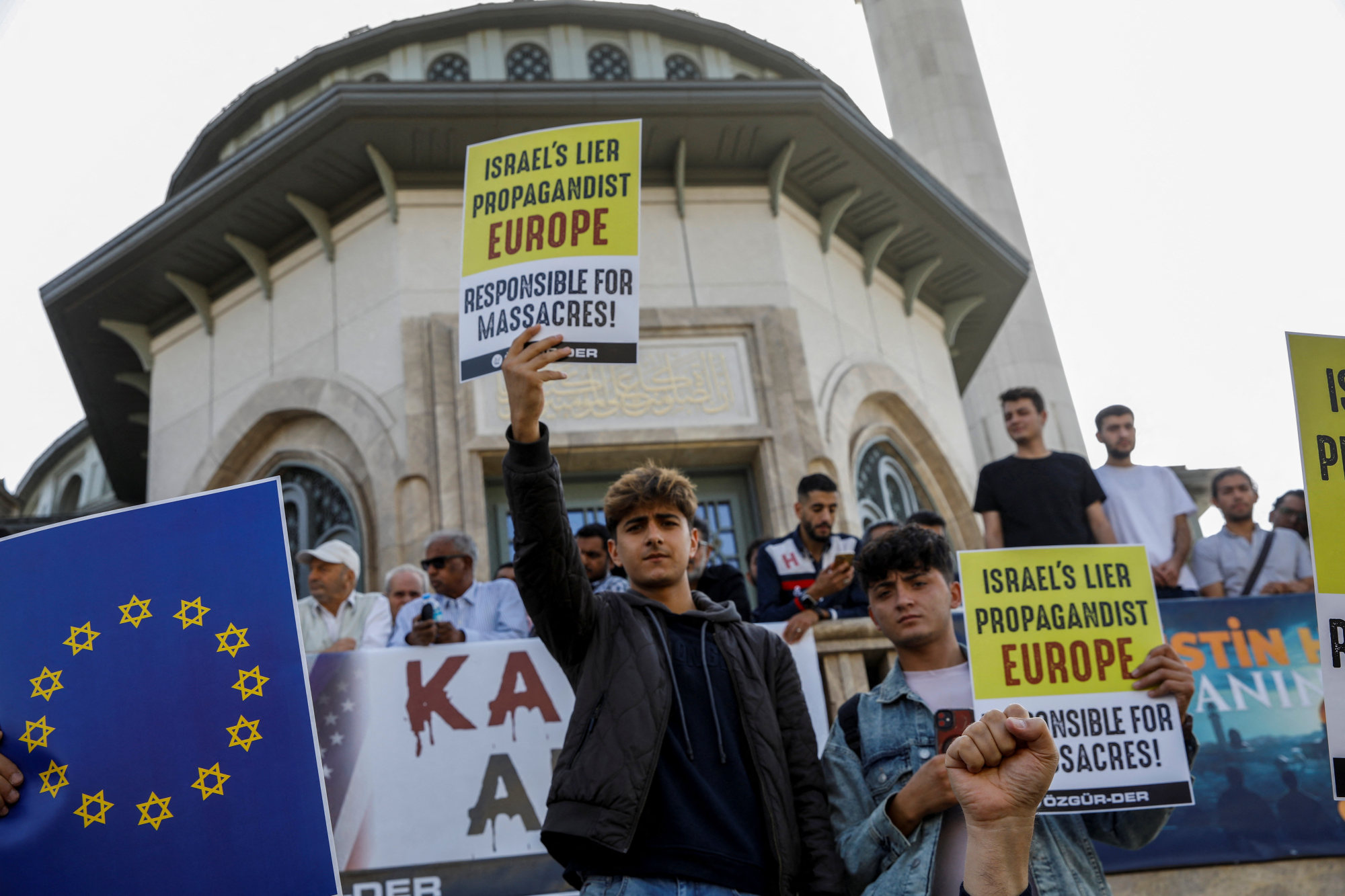Israel-Turkey ties in tatters after Erdogan slams Gaza strikes

Israel said Saturday it was recalling its diplomatic staff from Turkey after President Recep Tayyip Erdogan delivered a fierce attack on its military operation against Hamas militants in Gaza.
The announcement dealt a body blow to the sides’ nascent efforts to restore political and economic relations after a decade of all but frozen ties.
Israel and Turkey – an overwhelmingly Muslim nation that forms the bulwark of Nato defences on the edge of the Middle East – had only just agreed to reappoint ambassadors last year.
They were also resuming discussions on a US-backed natural gas pipeline project that could have formed the basis for much closer and more lasting cooperation in the coming years.
But their relations unravelled as Erdogan began to pick up the pace and venom of his attacks on Israel’s retaliatory military operation against Hamas in the Gaza Strip.
Hamas militants staged a surprise attack on October 7 during which they killed 1,400 people – mostly civilians – and seized more than 220 hostages.
The Hamas-controlled health ministry in Gaza has said Israeli strikes have killed 7,703 people – also mainly civilians – with more than 3,500 of them children.
Erdogan’s Islamic-rooted party staged a massive rally in Istanbul on Saturday that the president said drew a crowd of 1.5 million people.
Why Qatar, Egypt and Turkey are struggling to mediate the Israel-Gaza war
Why Qatar, Egypt and Turkey are struggling to mediate the Israel-Gaza war
“Israel, you are an occupier,” he told the Turkish and Palestinian flag waving sea of supporters. He accused the Israel government of behaving like a “war criminal” and trying to “eradicate” Palestinians.
“Of course, every country has the right to defend itself. But where is the justice in this case? There is no justice – just a vicious massacre happening in Gaza.”
Israeli Foreign Minister Eli Cohen recalled all diplomatic staff from Turkey moments after Erdogan finished his remarks.
“Given the grave statements coming from Turkey, I have ordered the return of diplomatic representatives there in order to conduct a re-evaluation of the relations between Israel and Turkey,” he said in a statement.
Israel had already ordered diplomatic staff out of Turkey and several other regional countries as a security precaution earlier this month. A Turkish diplomatic source said all Israeli diplomats had left the country by October 19.
“It is difficult to understand whom Cohen had instructed to return,” the Turkish diplomatic source said.
But Cohen’s statement adds a new diplomatic dimension to the withdrawal. It follows Erdogan’s own announcement earlier this week that he was cancelling plans to visit Israel because of its “inhumane” war.
The sides’ diplomatic relations are now in danger of falling to the lows they experienced when an Israeli raid on a Turkish ship carrying aid into Gaza killed 10 civilians in 2010.
Biden says Hamas attack aimed at disrupting warming Israel-Saudi ties
Biden says Hamas attack aimed at disrupting warming Israel-Saudi ties
Erdogan has been a leading international supporter of Palestinian rights during his two-decade rule. He told Saturday’s rally that Israel was “a pawn in the region” that was being used by Western powers to stamp their authority on the Middle East.
“The main culprit behind the massacre unfolding in Gaza is the West,” Erdogan declared.
And he accused Israel’s allies of creating a “crusade war atmosphere” pitting Christians against Muslims.
“Listen to our call for dialogue,” Erdogan said. “No one loses from a just peace.”

Erdogan’s address came in response to days of pro-Palestinian protests in Istanbul and other major cities organised by Turkey’s more right-wing and Islamic conservative groups.
But one poll released this week showed most respondents preferring to see Turkey remain either neutral or try to play a mediating role in the war.
The Metropoll survey showed 11.3 per cent of the respondents saying they “back Hamas”.
But 34.5 per cent said Turkey should stay “neutral” and 26.4 per cent said it should mediate. Just 3.0 per cent said they “support Israel”.






